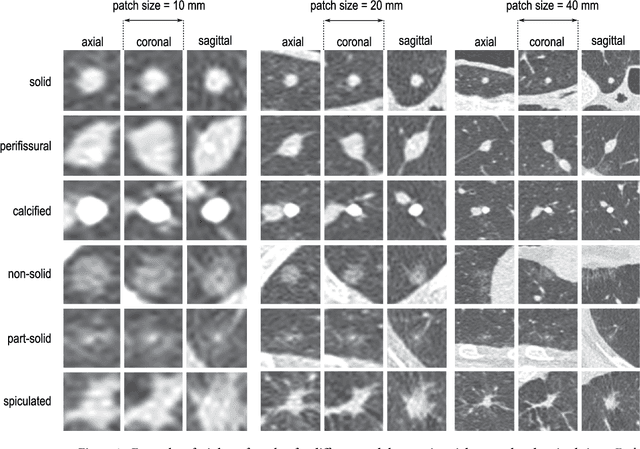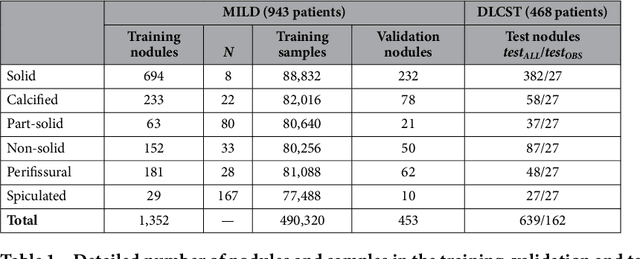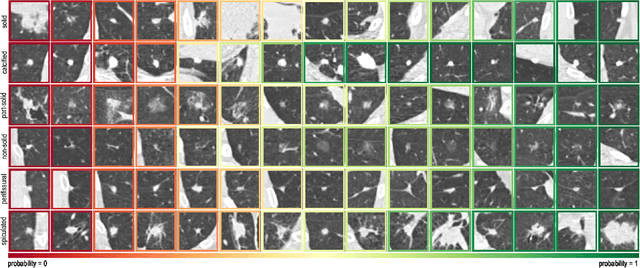Cornelia Schaefer-Prokop
Function Follows Form: Regression from Complete Thoracic Computed Tomography Scans
Sep 27, 2019



Abstract:Chronic Obstructive Pulmonary Disease (COPD) is a leading cause of morbidity and mortality. While COPD diagnosis is based on lung function tests, early stages and progression of different aspects of the disease can be visible and quantitatively assessed on computed tomography (CT) scans. Many studies have been published that quantify imaging biomarkers related to COPD. In this paper we present a convolutional neural network that directly computes visual emphysema scores and predicts the outcome of lung function tests for 195 CT scans from the COPDGene study. Contrary to previous work, the proposed method does not encode any specific prior knowledge about what to quantify, but it is trained end-to-end with a set of 1424 CT scans for which the output parameters were available. The network provided state-of-the-art results for these tasks: Visual emphysema scores are comparable to those assessed by trained human observers; COPD diagnosis from estimated lung function reaches an area under the ROC curve of 0.94, outperforming prior art. The method is easily generalizable to other situations where information from whole scans needs to be summarized in single quantities.
Towards automatic pulmonary nodule management in lung cancer screening with deep learning
May 23, 2017



Abstract:The introduction of lung cancer screening programs will produce an unprecedented amount of chest CT scans in the near future, which radiologists will have to read in order to decide on a patient follow-up strategy. According to the current guidelines, the workup of screen-detected nodules strongly relies on nodule size and nodule type. In this paper, we present a deep learning system based on multi-stream multi-scale convolutional networks, which automatically classifies all nodule types relevant for nodule workup. The system processes raw CT data containing a nodule without the need for any additional information such as nodule segmentation or nodule size and learns a representation of 3D data by analyzing an arbitrary number of 2D views of a given nodule. The deep learning system was trained with data from the Italian MILD screening trial and validated on an independent set of data from the Danish DLCST screening trial. We analyze the advantage of processing nodules at multiple scales with a multi-stream convolutional network architecture, and we show that the proposed deep learning system achieves performance at classifying nodule type that surpasses the one of classical machine learning approaches and is within the inter-observer variability among four experienced human observers.
* Published on Scientific Reports
 Add to Chrome
Add to Chrome Add to Firefox
Add to Firefox Add to Edge
Add to Edge